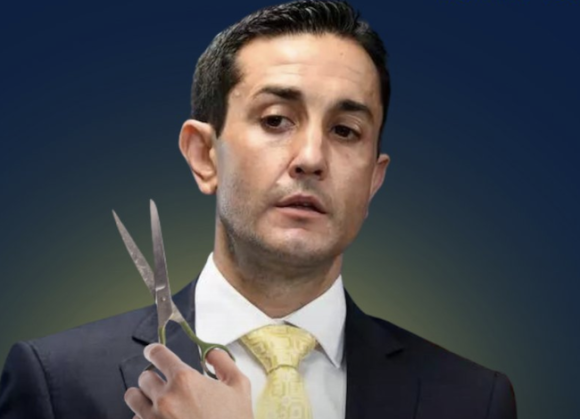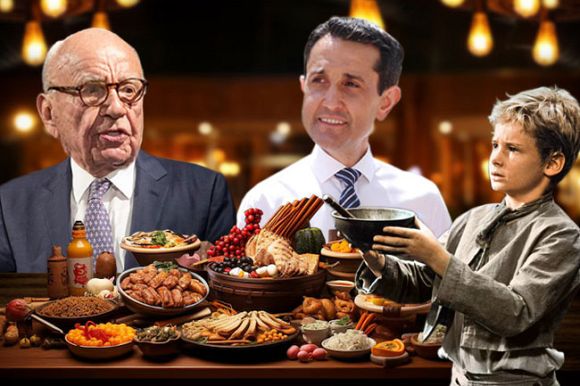The actual numbers in the Queensland Election outcome were a “normal” change of government, not a “landslide” or “wipeout” and the new Premier will be under three-way pressure over which way to take the state.
Breaking through a long period of Labor rule, the Liberal National Party won government in Queensland on 26 October.
The incoming conservative government did a direct swap with the outgoing Labor Party: In 2020 Labor obtained 52 seats, the LNP 34; in 2024 the LNP got 52 seats and Labor 36. It means that the LNP can only lose six seats to lose its majority in the 93-seat parliament, so it might think first before rushing in with radical policies.
Adult time in double-time
Yet, in the first week, 28 November, the LNP launched the ‘adult crime, adult time’ legislation, covering 13 offences including murder (carrying a mandatory life sentence), applicable to “youth offenders” starting at age ten.
Labor had relaxed the age limits, so the LNP campaigned around street crime, specifically directed at Indigenous children out at night — making sure to include burglary and car stealing offences in the 13 serious crimes.
The prospect of children doing extended time was immediately condemned by welfare agencies including the UN Committee on the Rights of the Child. More to come, in and out of the courts.
Premier David Crisafulli himself added that courts would have access to offenders' juvenile records, and would be open to both the media and victims of crime, to “raise the rights of victims ahead of the rights of offenders”. He has also sworn to spend $100 million on a human rights sweetener, ‘Gold Standard Early Intervention, crime prevention and effective rehabilitation’.
Three-way tug-o-war
That ambition will highlight some contradictory demands for the new Premier that will be pulling him in three different directions.
Right now, the children's law will please National Party bush conservatives in the regional seats that were captured from Labor this year; except they won't like the expensive rehabilitation part — unless it means tough stuff like boot camps. It is another policy that will be under close surveillance.
The bush lobby has also been given the peremptory cancellation of the Reconciliation process meant to move Queensland towards a treaty with Indigenous citizens. That particular putsch is strong in the Western grazing community where there is background anxiety about Indigenous Australians and the way that the land was got.
One other move likely to come from this group will be to remove restraints on tree clearing. Usually, the LNP moves to get out the bulldozers, knocking down environmental protections legislated by Labor. With climate change, open-slather clearing will mean that Queensland's – and Australia's – carbon emissions goals will fail dramatically. (Regulated clearing of woody vegetation, both regrowth and new, has been ongoing; for example, 106,000 hectares of Mulga lands were cleared in 2018).
Demographic change might continue to help the LNP in the regions, where it won a dozen traditionally Labor seats in October, and where energy and minerals industries have burgeoned.
At a cultural level, this is being played up in campaigns by the mining industry, trading on the upward mobility of local and interstate workers getting mega remuneration over the life of a mine, saying everybody else depends on selling them goods and services. See, for instance, the coal industry’s free “newspaper”, The Coalface, representing Northern communities as the “mining community” and approving political candidates conditional on their support.
Another, Mining.com.au, is reporting on ‘How Queensland coal miners tackled the Labor party into touch’. Mining and the visible high-living can be exaggerated but the industry has grown to 18.3 per cent of total state economic output.
Neoliberals and modernisation
The second group at Crisafulli's ear will be singing a familiar song, from his time in the one-term neoliberal Government of Campbell Newman (2012-15): hold-overs from the Gold Coast White Shoe Brigade and self-styled frequenters of the Big End of Town wanting privatisations. Queensland voters have shown at elections (in 2012 and 2015) that they detest their assets being sold and then re-sold for somebody's profit.
However, if the LNP Government does take on big projects and runs out of money in a few years, and if the polls are holding up all right, it might not resist the temptation to start selling.
Enter the third group who, for various reasons, wants some continuation of Labor's modernisation of Queensland after the rough-and-ready years of bush populism under Joh Bjelke Petersen (National Party Premier, 1968-87).
In power since 1989, with two short breaks of two and three years, Labor got the job of catch-up, taking the state into clear third position in Australia in terms of population growth and economic performance. It began with electoral reform and cleaning up corruption, and has provided massive infrastructure development including urban growth to cope with large-scale immigration from interstate.
A lot of the change has been cultural. For much of the period in office, the majority of the Government was made up of women, with female Premiers; several reforms reflecting that included liberalisation of the law on abortion.
Queensland's urban areas have seen transformational change, in city skylines, vastly expanded public transportation and growth of higher education as a leading industry, with international students providing up to half the numbers.
The Liberal part of the LNP does well in two urban zones, the Gold Coast and Sunshine Coast, with exceptional help from millionaires and retirees, but even in the “good” year of 2024 failed in Brisbane, barring a few seats won on the fringes. Labor has 28 metropolitan seats and the Government has eight.
Upsetting predictions
Crisafulli is probably alright with the National Party old guard, himself coming from a sugar cane farm near Ingham, also with the business lobby, being comfortably installed in an electorate on the Gold Coast. Yet at 45, he will hope to stay on for some time, which would mean accepting the modern world to somehow get wins in the capital city.
Labor upset predictions from early opinion polls of a wipeout in the 2024 Election, which had excited several dillpot journalists, for a time, colouring up the campaign. It had a popular benefits package, including the 50 cent bus fares, but took a net loss of 16 seats notably from the “It's Time” factor, from being blamed for inflation and higher interest rates, as an incumbent government, and from the racial issue around law and order.
In parts of Townsville, every house has a two-metre fence and usually security screens, indicative of some real worry and communities becoming open to dog-whistling against coloured people generally. It certainly had much to do with the earlier defeat of the Voice Referendum and might yet come back for a third round in the 2025 Federal Election, on the theme of keeping out non-White migrants.
Amongst Dr Lee Duffield’s vast journalistic experience, he has served as ABC's European correspondent. He is also an esteemed academic and member of the editorial advisory board of Pacific Journalism Review and elected member of the University of Queensland Senate.
 This work is licensed under a Creative Commons Attribution-NonCommercial-NoDerivs 3.0 Australia License
This work is licensed under a Creative Commons Attribution-NonCommercial-NoDerivs 3.0 Australia License
Support independent journalism Subscribe to IA.

Related Articles
- School lunches, royal tours, foreign wars & the myth of Australia’s classless society
- Why the LNP would be worse at governing Queensland than Labor
- Queensland's so called 'highway to hell' election beat-up
- 'Adult Crime, Adult Time' in Queensland: LNP direct their anger toward children
- Labor fights the trend as election day looms in Queensland














